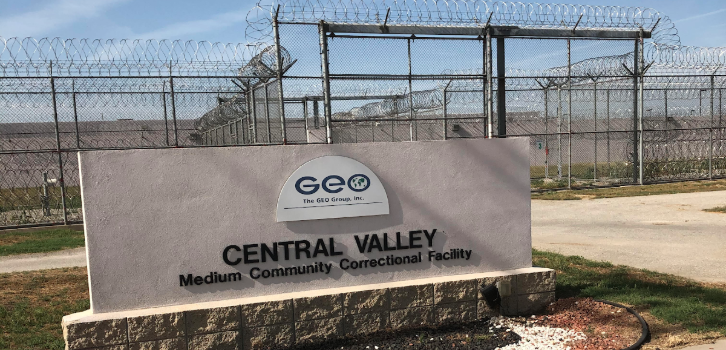
A federal judge has approved a temporary restraining order against the City of McFarland and the GEO Group, Inc., which means the two agencies cannot act on the permits that would allow GEO to turn two state prisons in McFarland to immigration detention centers and cannot use the facilities as immigration detention centers.
A lawsuit, filed by Freedom for Immigrants and the Immigrant Legal Resource Center, was filed to enforce Senate Bill 29, the Dignity Not Detention Act, which requires the entities to provide at least 180 days notice before executing a permit for an immigration detention facility and to hold two open meetings where public comments are “solicited and heard.”
“The Dignity Not Detention Act was passed to bring much needed transparency and accountability to the backdoor deals that occur between cities and corporations when setting up private immigration detention centers,” said Grisel Ruiz, supervising attorney at the Immigrant Legal Resource Center. “These facilities invade communities and cause great harm, making it critical for community members to have a seat at the table when deciding whether or not to allow them in.”
The organizations say the City of McFarland failed to fulfill both requirements outlined in SB 29.
“By violating this state law, the city of McFarland is shamelessly skirting its responsibility to answer to its community,” said Ruiz. “We will not stand for the circumvention of the very law that was put in place to ensure that cities put their communities first and hold the will of the people over profits.”
The McFarland City Council voted and approved via a Zoom meeting in April the permits that would allow GEO to turn two state prisons to immigration detention centers.
RELATED CONTENT: McFarland and city council approves GEO’s request for permits to operate two immigration detention facilities
However, many community members were unable to participate in the Zoom meeting. Because the meeting was held through teleconference, there was a cap of 100 people who could join the meeting. Advocates urged the city council to postpone the meeting to a time when all residents could partake.
“I’m getting quite a bit of messages from community members who are trying to log into the call, but the meeting has reached the maximum 100 people,” said Faith in the Valley community organizer Alex Gonzalez said at April’s meeting. “We suggest the meeting be postponed until we have a democratic process, and people can participate.”
However, the council denied that request.
“In the midst of this trying and devastating time, the courageous community of McFarland gave the entire Central Valley a jolt of hope and inspiration earlier this year, until its City Council provided temporary discouragement and disappointment,” said Pastor Trena Turner, Executive Director of Faith in the Valley. “We already knew from the thousands of residents who organized and braved winter colds to urge their City officials to stand with their immigrant community instead of a multi-billion dollar
corporation’s profit-at-all-cost interests, that the City’s decision was morally bankrupt. Now, thanks to legal partners and champions, we know that it was also illegal.”
The vote to approve the permits goes back to the beginning of the year.
RELATED CONTENT: McFarland to fill vacancy; advocates say meeting protocols to involve public are ‘limited’
McFarland’s Planning Commission Board in February denied the permits. Then GEO appealed to the City, but requested the vacancy on the city council be filled before a vote took place. Because of the pandemic, people were able to listen in on the meeting via a teleconference line; however, translations services were not provided. The council appointed Eric Rodriguez to fill the vacancy in April.
The next step calls for a judge to consider a preliminary injunction, which could extend the the order. GEO and McFarland have seven days to respond, and after briefing is done by both sides, the judge will rule on the preliminary injunction.